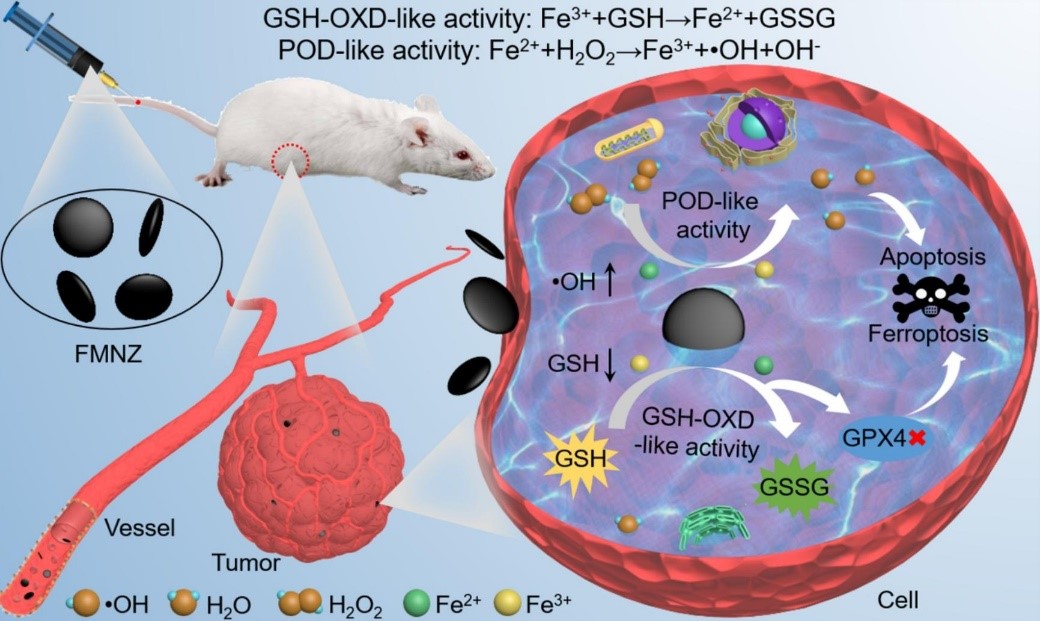
According to a study published in Chemical Engineering Journal, a collaborative research team led by Prof. WANG Hui from the Hefei Institutes of Physical Science of the Chinese Academy of Sciences has developed magnetite nanozyme (MNZ) with dual enzymatic activities through structural engineering and demonstrated its structure-dependent behavior in the process of tumor treatment.
MNZ, as a substitute for natural enzymes, has been widely studied in the field of tumor catalytic therapy. However, the catalytic efficiency of traditional MNZ in tumor microenvironment is often limited, which is mainly due to the low production rate of hydroxyl radical (·OH).
In this study, the researchers developed the MNZs with dual enzyme activity using the solvothermal method.
"We prepared the MNZs with three different shapes: flakes, ellipses and spheres," said Prof. WANG hui, "and this allowed us to verify how the shapes affect the treatment and reveal the potential mechanism both in vitro and in vivo."
The novel MNZs have two important functions: they imitate glutathione, which is an antioxidant in cells. This helps to reduce the consumption of harmful hydroxyl radicals; and they act as peroxidases, breaking down hydrogen peroxide and generating highly toxic hydroxyl radicals. This self-cascade reaction disrupts the balance of reactive oxygen species in cells, enhancing the therapeutic effect on tumors.
This advance not only provides a new strategy for catalytic tumor therapy, but also opens up possibilities for the future application of nano-materials in the biomedical field.

Schematic illustration of self-cascade MNZs with dual enzymatic GSH-OXD-like and POD-like activities for tumor-specific CDT. (Image by QIAN Yong)

86-10-68597521 (day)
86-10-68597289 (night)

52 Sanlihe Rd., Xicheng District,
Beijing, China (100864)

